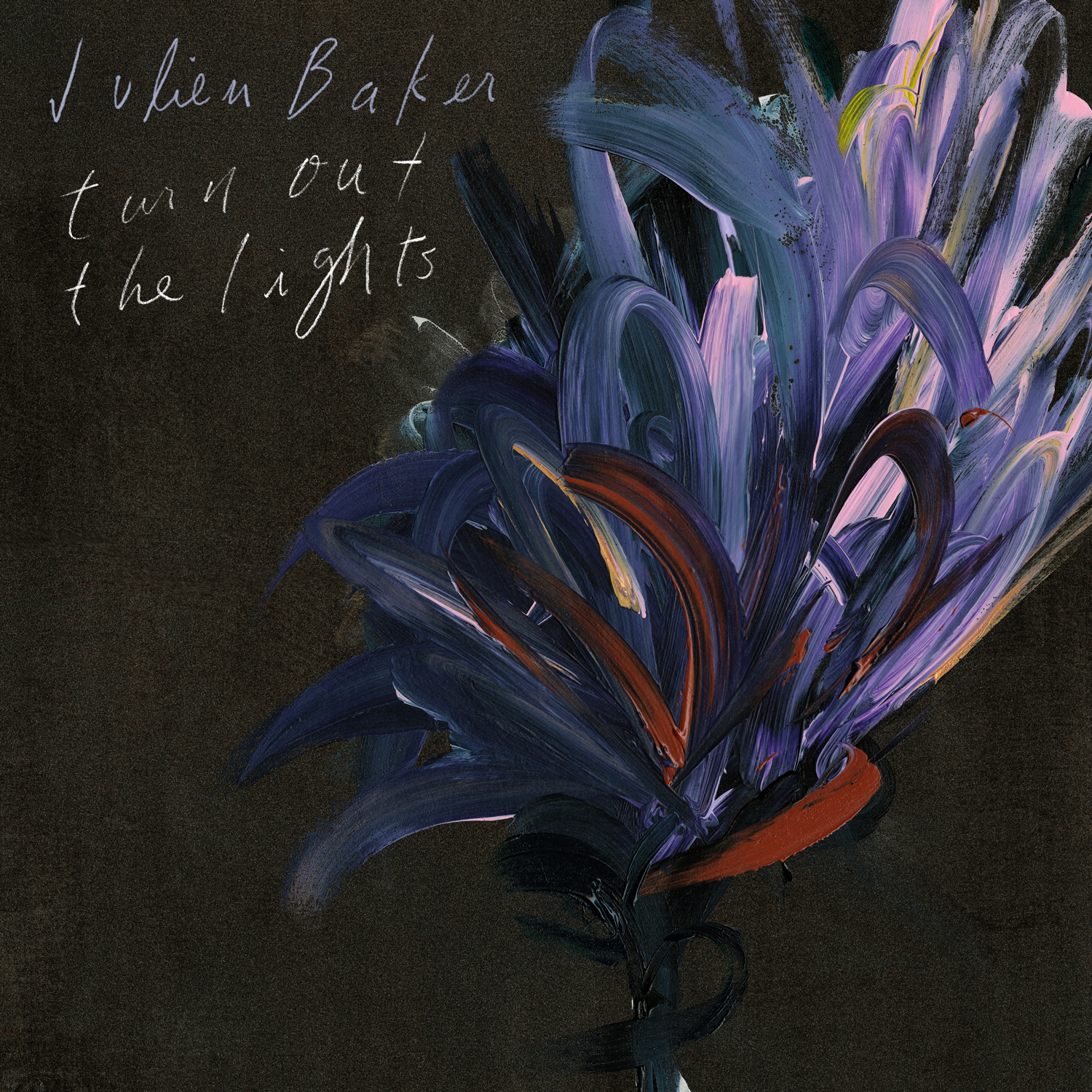Turn Out the Lights, Julien Baker’s second solo album and Matador Records debut, marks her formal entry as a boldface name in the indie rock world. She catapulted here on the strength of her self-released 2015 debut, Sprained Ankle, nine songs that spawned a devoted fanbase and, in the twinkling title track, a contemporary classic. With spare, solo guitar and unfailing honesty, Baker grappled with enormous subjects of God, pain, and death. Now, as if acknowledging her newfound audience, she’s upgraded to rich, high-fidelity arrangements that flip her grey sound into deep blue.
The Baker of Sprained Ankle escaped death by, as she saw it, a cruel act of God, awaking in a hospital bed to see if healing her body would be enough to heal her mind. Three years on, she knows it’s not, and Turn Out the Lights directs its attention to the dark night of the soul. Its narrator’s struggles are bound up inextricably with a Christian faith seemingly as unshakeable as her pessimism. She calls the stars in the sky “puncture marks” and “perforated dark,” connecting holy stigmata and self-harm. In “Blacktop,” the first song on Sprained Ankle, she described crashing her car into a streetlight. Lights offers a sequel of sorts, “Hurt Less,” where she confesses she used to care so little for herself she didn’t bother wearing a seatbelt. “When I’m pitched through the windshield I hope the last thing that I felt before the pavement / Was my body float, I hope my soul goes too,” she sings.
Ankle was so sparse that its songs usually crested on Baker’s voice alone—a remarkable, feathery-soft and powerful instrument. On Lights she rallies piano and strings to accentuate the payoff. (Strings are performed by Camille Faulkner; the album’s first two tracks add subtle clarinet and saxophone from Sorority Noise’s Cameron Boucher.) The final result is a balm to soothe well-trodden emotional frequencies. The climactic section of the title track ascends essentially the same ladder as a Coldplay song.
What will hopefully spare Julien Baker from reaching the anodyne plateaus of Chris Martin is her instance on facing the worst without flinching. She sings unblinkingly about suicide, calling it “the easy way out and the hardest part” (“Claws in Your Back”). She asks if she is unfixable, if her Creator made her broken. Her image of normality is banal—“I’d have two cars, a garage, a job, and I would go to church on Sunday,” she sings on “Happy to Be Here”—but from the outside looking in, maybe that’s all you can imagine wanting.
It’s hard not to want to lift Baker up, especially because she writes such low opinions of herself. “I know I’m a pile of filthy wreckage,” she sang on “Everybody Does,” a song from Sprained Ankle. “I know that I’m evil,” she confesses on Turn Out the Lights’ “Even.” Few solo singer-songwriters in recent memory have made such a prominent selling point of self-flagellation, though one imagines there must be hundreds more obscure.
Baker recently told the New York Times that she takes inspiration from the hymns she was raised with. It’s not that she’s making praise music, though she’s so convinced God can hear her that you might start to believe it yourself. Her songs rely on plainspokenness, the kind of familiarity that withstands repetition. (The first sounds we hear are truly lived-in: Baker closes the door, drops her keychain, and sits at the piano.) Turn Out the Lights is intended as comfort more than entertainment, but truthfully, I don’t find much of either. Take it from Baker, then, instead: “If it makes me feel better, how bad can it be?”





